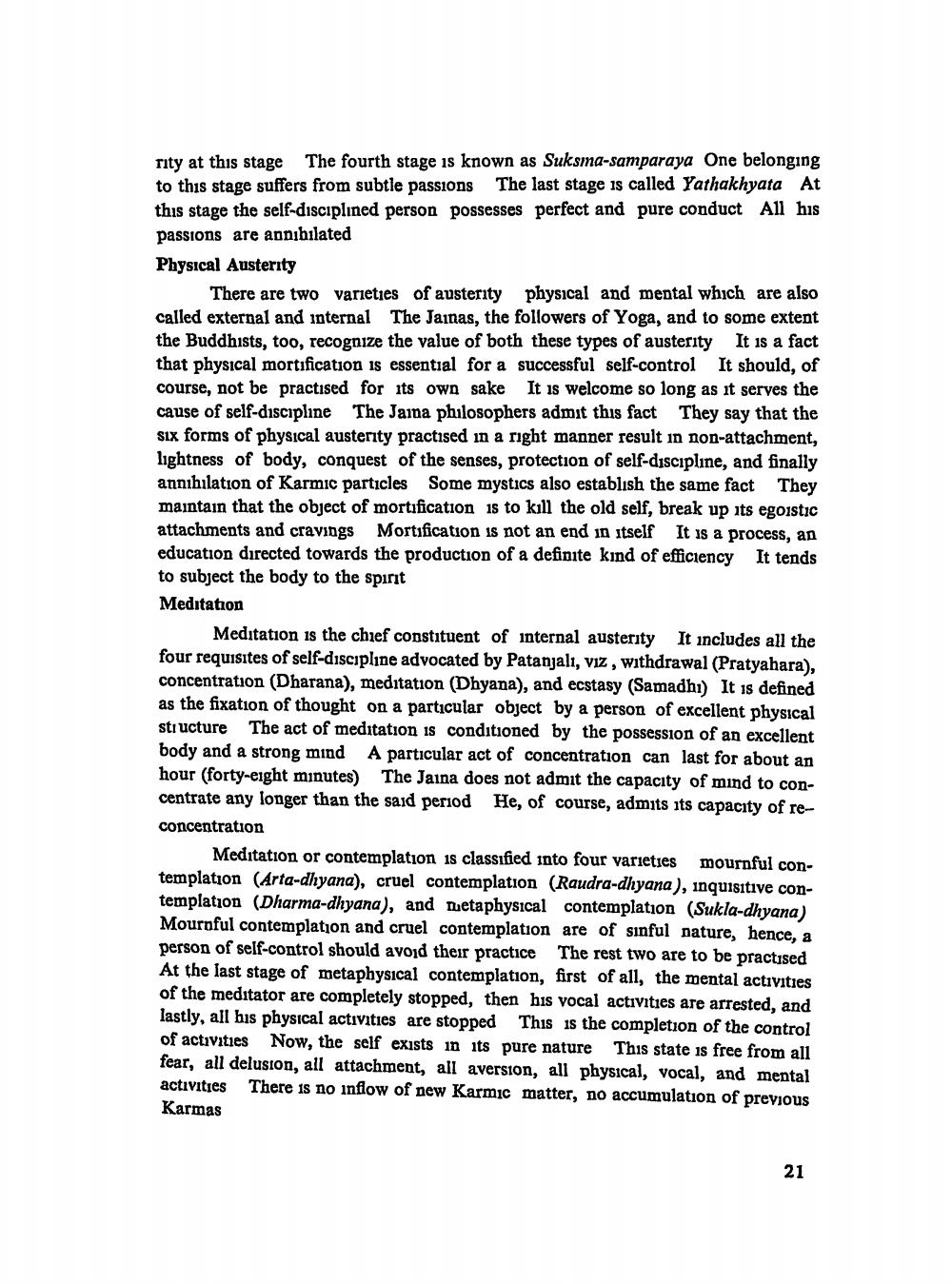________________
rity at this stage The fourth stage is known as Suksma-samparaya One belonging to this stage suffers from subtle passions The last stage is called Yathakhyata At this stage the self-disciplined person possesses perfect and pure conduct All his passions are annibilated Physical Austerity
There are two varieties of austerity physical and mental which are also called external and internal The Jainas, the followers of Yoga, and to some extent the Buddhists, too, recognize the value of both these types of austerity It is a fact that physical mortification is essential for a successful self-control It should, of course, not be practised for its own sake It is welcome so long as it serves the cause of self-discipline The Jaina philosophers admit this fact They say that the sıx forms of physical austerity practised in a right manner result in non-attachment, lightness of body, conquest of the senses, protection of self-discipline, and finally annihilation of Karmic particles Some mystics also establish the same fact They maintain that the object of mortification is to kill the old self, break up its egoistic attachments and cravings Mortification is not an end in itself It is a process, an education directed towards the production of a definite kind of efficiency It tends to subject the body to the spirit Meditation
Meditation is the chief constituent of internal austerity It includes all the four requisites of self-discipline advocated by Patanjalı, viz, withdrawal (Pratyahara), concentration (Dharana), meditation (Dhyana), and ecstasy (Samadhi) It is defined as the fixation of thought on a particular object by a person of excellent physical structure The act of meditation is conditioned by the possession of an excellent body and a strong mind A particular act of concentration can last for about an hour (forty-eight minutes) The Jaina does not admit the capacity of mind to concentrate any longer than the said period He, of course, admits its capacity of reconcentration
Meditation or contemplation is classified into four varieties mournful contemplation (Arta-dhyana), cruel contemplation (Raudra-dhyana), inquisitive contemplation (Dharma-dhyana), and metaphysical contemplation (Sukla-dhyana) Mournful contemplation and cruel contemplation are of sinful nature, hence, a person of self-control should avoid their practice The rest two are to be practised At the last stage of metaphysical contemplation, first of all, the mental activities of the meditator are completely stopped, then his vocal activities are arrested, and lastly, all his physical activities are stopped This is the completion of the control of activities Now, the self exists in its pure nature This state is free from all fear, all delusion, all attachment, all aversion, all physical, vocal, and mental activities There is no inflow of new Karmic matter, no accumulation of previous Karmas
21




